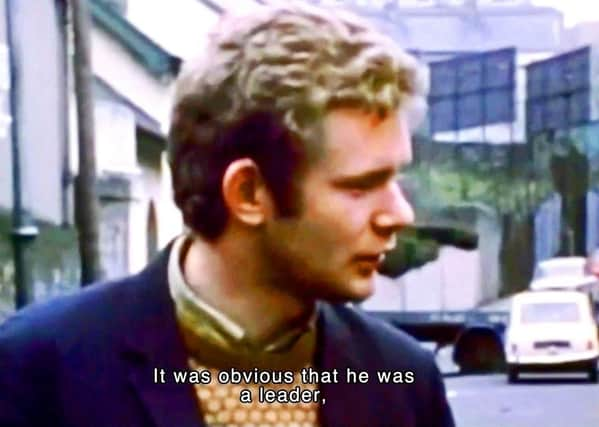Martin McGuinness documentary: Anti-nationalist voting claim ‘misconceived’


The 87-minute long documentary – called just ‘Martin McGuinness’ – was broadcast last Wednesday on TG4.
It has been strongly criticised for its portrayal of Mr McGuinness (whom it describes as a “fighter, negotiator and politician”) and for under-representing the voices of the IRA’s 1,700-plus murder victims and their families.
Advertisement
Hide AdAdvertisement
Hide AdThere are just three voices of bereaved relatives heard in the whole show, for a total of four-and-a-half minutes.
For its part, TG4 says it is “happy with the balance of opinion” in the documentary.
Now the News Letter turns the spotlight on one of the documentary’s factual claims.
Advertisement
Hide AdAdvertisement
Hide AdThe narrator in the show said: “In 1968, only one-tenth of nationalists possessed their own house, and in addition, only homeowners had the right to vote.”
Firstly, there was no figure cited for the number of unionists who owned their own home, so there was nothing to compare this number with.
Secondly, suffrage for Stormont and Westminster elections was universal; in other words, these elections operated on a one man, one vote.
Lastly, when it comes to local council elections, professor Graham Walker disputes the claim that people had to own property to vote.
Advertisement
Hide AdAdvertisement
Hide Ad“This is a common misconception,” said the Queen’s University Belfast historian.
Whilst voting “was universal in the case of Stormont and Westminster,” only a registered rate-payer and their spouse could vote in council elections.
“They excluded people of voting age who lived in the house, but who were not on the rate book. It also excluded lodgers,” the professor said.
It is believed this rule would have tended to work against Catholics, on the basis that they would have had bigger families – and therefore more people living in each house – and yet voting was restricted to just two householders.
Advertisement
Hide AdAdvertisement
Hide AdIn addition, business owners were entitled to extra votes – and these people were more likely to be Protestant.
Great Britain had a similar system until 1946, when it changed to universal suffrage.
“In absolute terms, I think there are some people who have claimed there were more Protestants disenfranchised – but proportionately it would’ve been more Catholics,” said professor Walker.
“It was a rate-payer franchise, and not property owners.
“And while Catholics would have been disproportionately affected in terms of those excluded from the franchise, nonetheless this was not done on a religious basis.”
Prof Walker’s points were put to TG4 last week.
Advertisement
Hide AdAdvertisement
Hide AdIt said that the matter had been passed to the commissioning editor and the show’s producer.
No response has been received at time of writing.
The show was funded by £44,000 from Northern Ireland Screen, plus another £76,000 of Irish licence fee-payers’ money.
In addition, TG4 itself gets about £36m in public funding too.
Advertisement
Hide AdAdvertisement
Hide AdMore from this reporter: Serious winter flu cases virtually wiped out in Northern Ireland
A message from the Editor:
Thank you for reading this story on our website. While I have your attention, I also have an important request to make of you.
With the coronavirus lockdown having a major impact on many of our advertisers — and consequently the revenue we receive — we are more reliant than ever on you taking out a digital subscription.
Subscribe to newsletter.co.uk and enjoy unlimited access to the best Northern Ireland and UK news and information online and on our app. With a digital subscription, you can read more than 5 articles, see fewer ads, enjoy faster load times, and get access to exclusive newsletters and content.
Advertisement
Hide AdAdvertisement
Hide AdVisit https://www.newsletter.co.uk/subscriptions now to sign up.
Our journalism costs money and we rely on advertising, print and digital revenues to help to support them. By supporting us, we are able to support you in providing trusted, fact-checked content for this website.
Alistair Bushe
Editor